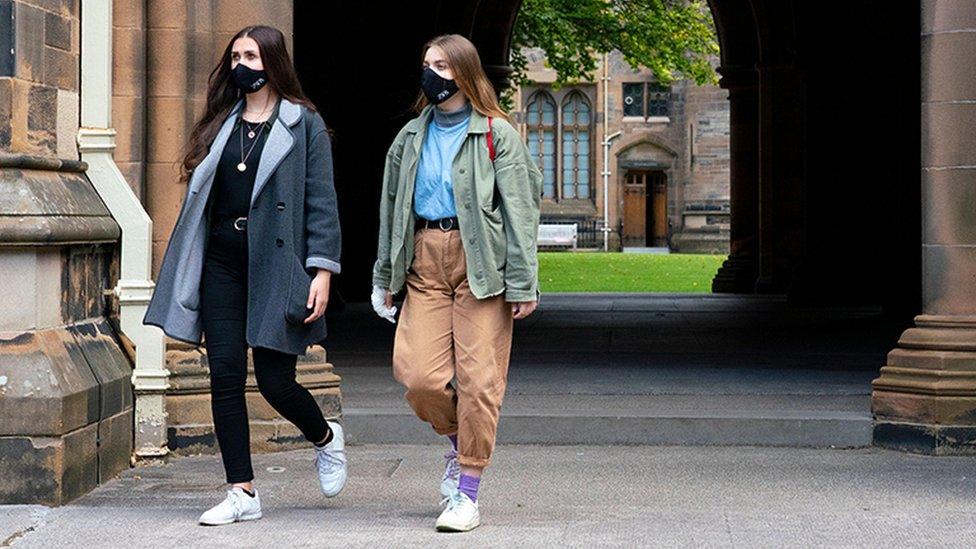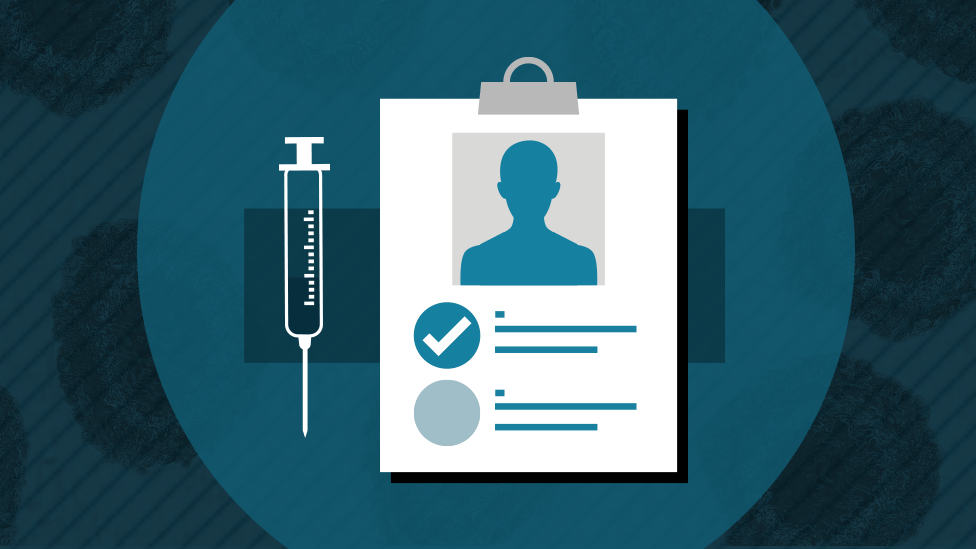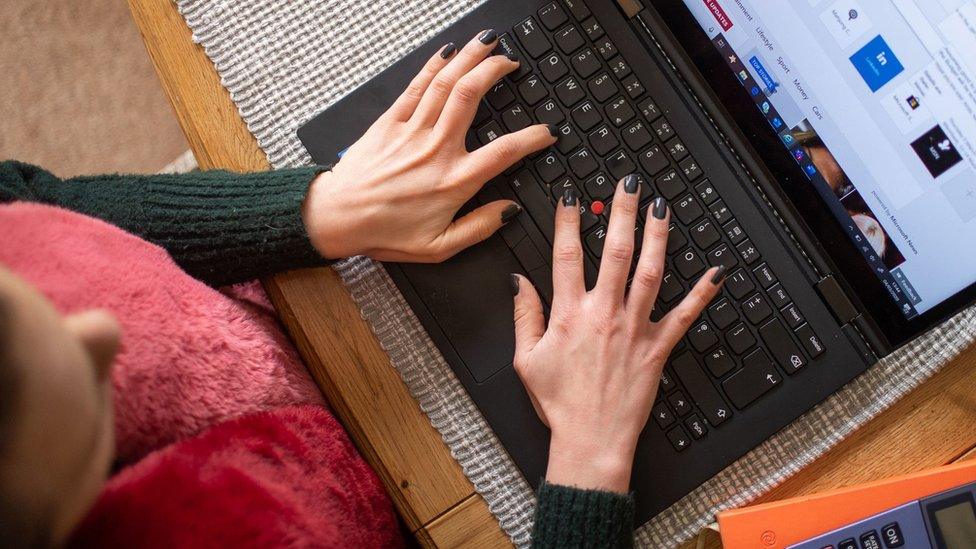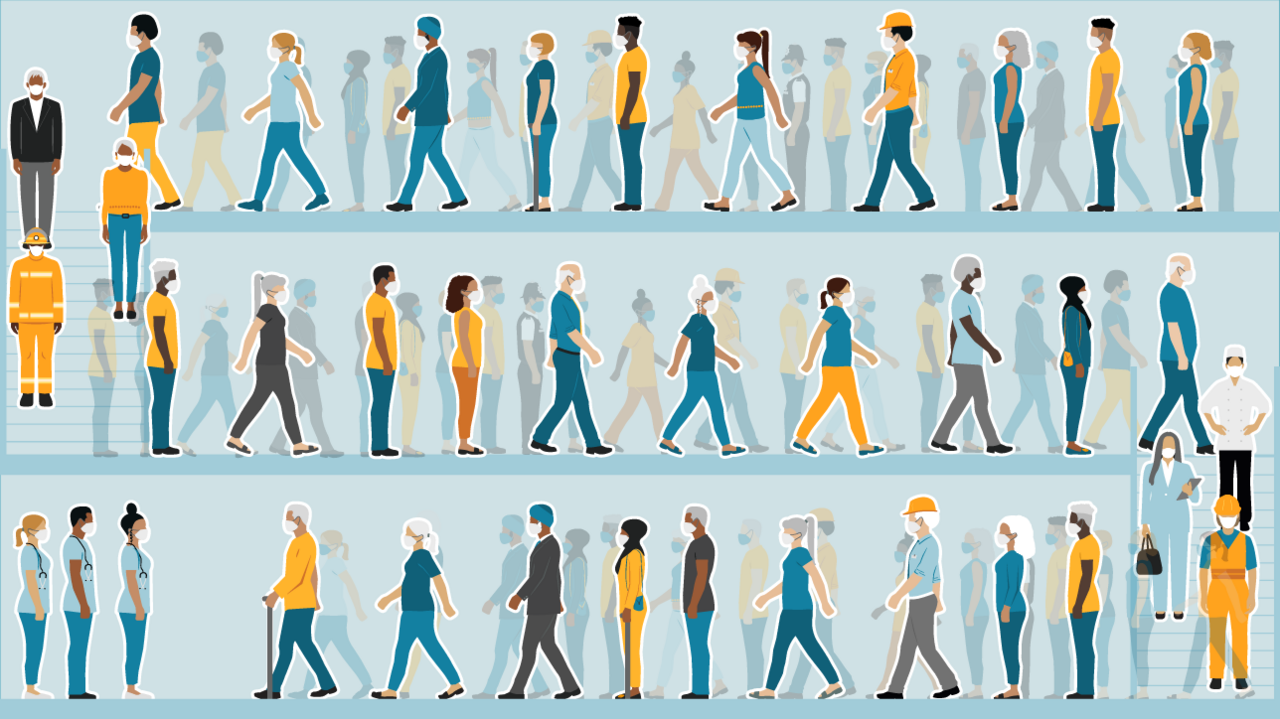Covid: University students could be told jabs are required - Raab
- Published
- comments

University students will get "advance warning" if they are required to have vaccines before moving to halls of residence, Dominic Raab has said.
The foreign secretary said decisions will be taken in September - but he was keen to encourage vaccine uptake.
More than 70% of adults have now had both jabs, and Mr Raab said "we need to close that margin".
Currently, the government plans to require two jabs to go to nightclubs and other crowded venues in England.
The full details of the plan are yet to be seen, but the rule is set to come into force at the end of September. An NHS Covid Pass - which you can obtain electronically or as a letter - will be used as proof.
Mr Raab was asked on BBC Radio 4's Today programme whether the government was in favour of going further and making the vaccine pass compulsory in more settings.
"I think the key principle is in crowded places where we want to open up... whether it's going to a football game or pop concert, we want to make sure people can do that," he said.
And asked whether they were planning to require students in university halls to get vaccinated, Mr Raab said: "When we come to the crunch, these decisions will be taken in September. We've got some time to go.
"Right the way through this pandemic we've had to take advice and decisions based on the evidence when we see it.
"We will certainly make sure university students have advance warning, of course we're going to be mindful of this."
He said he had recently visited France, where they had a big surge in vaccinations after bringing in a health pass for many activities.
"It's a little bit of coaxing and cajoling and also making clear that ultimately over September when we know we'll see, as a result of coming out of the lockdown step four, an increase in cases, we can control that with backstop safeguard measures."
Latest government figures show that more than 71% of adults have now had two jabs, while 88% have had a first dose.
Young people who are within three months of turning 18 - meaning those who are soon able to go to university - and those aged 12-17 who live with people who have a suppressed immune system, can now also get a jab.
'Appalling'
The idea to make vaccines compulsory for university students - either to attend lectures or to live in halls of residence - was not ruled out by either education minister Vicky Ford or Downing Street when asked about it earlier this week.
"We are still looking at the scope for vaccination certifications," a No 10 spokesman said on Monday.
It is not clear if any rule, if it happens, would apply just to England or be adopted by the whole of the UK - the governments of Scotland, Wales and Northern Ireland are in charge of their own coronavirus rules and education is devolved.
Earlier this week, the trade union for academic staff such as lecturers, criticised the idea following news reports.
"Students should be prioritised for vaccinations, to ensure as many as possible have the opportunity to be vaccinated by September," said the University and College Union.
"But making vaccinations compulsory as a condition to access their education is wrong and would be hugely discriminatory against those who are unable to be vaccinated, and international students."
The National Union of Students also called the idea "appalling", saying there has been "no consultation whatsoever with the sector".
"All the students I speak with are incredibly eager to get their vaccinations - if anything they would like them bringing forwards so that they've had both doses before term begins," said president Larissa Kennedy.
She accused the government of "lining students up as scapegoats", describing it as "finger pointing nonsense".
Both Labour and leading universities have called for vaccination centres to be set up on campuses so that students are jabbed before the winter.
The Russell Group - made up of the UK's top universities - has offered its own spaces and facilities to be used as pop-up centres.


Are you affected by issues covered in this story? Share your experiences by emailing haveyoursay@bbc.co.uk, external.
Please include a contact number if you are willing to speak to a BBC journalist. You can also get in touch in the following ways:
WhatsApp: +44 7756 165803
Tweet: @BBC_HaveYourSay, external
Please read our terms & conditions and privacy policy
If you are reading this page and can't see the form you will need to visit the mobile version of the BBC website to submit your question or comment or you can email us at HaveYourSay@bbc.co.uk, external. Please include your name, age and location with any submission.

"THE STIGMA AND NEGATIVITY": The Tricky podcast discuss what it's like living with HIV and the level of information out there
"MENTAL AND PHYSICAL HEALTH ARE EQUALLY IMPORTANT": How Simone Biles is changing attitudes

- Published28 February 2022

- Published27 July 2021
- Published7 July 2021

- Published4 March 2022
